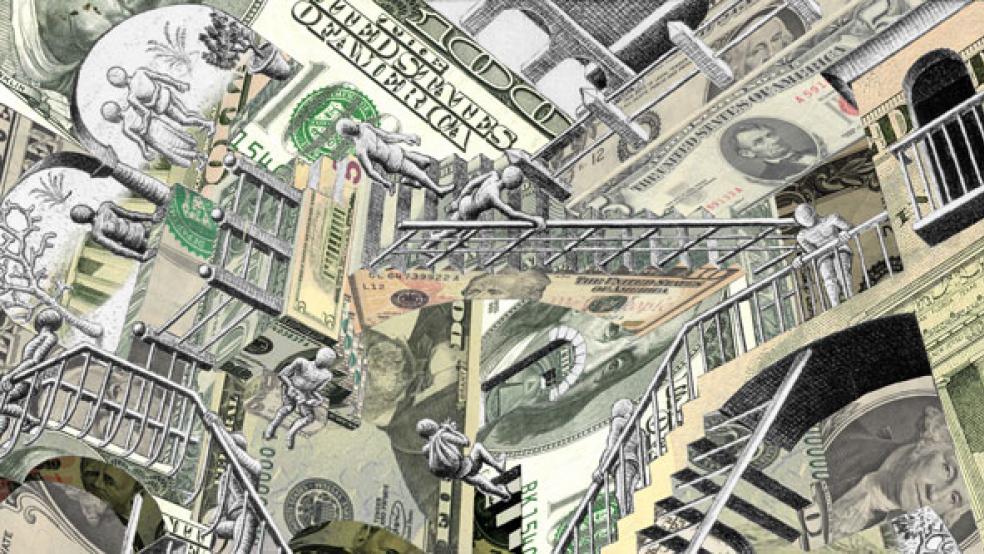Several events in recent weeks have changed the odds for tax reform this year. They move in opposite directions, but on balance I think the odds have improved slightly.

First, on the negative side, I still don’t see the outlines of a deal. Everyone is keen to cut the corporate tax rate, but there really aren't enough corporate tax preferences to eliminate to be able to bring the rate down more than a couple of points, assuming revenue-neutrality.
There is theoretically a pot of money available from taxing the possibly trillions of dollars multinationals have squirreled away in tax havens like Luxembourg, but no one has yet figured out how to do that.
Moreover, at least one major corporation, Apple, with a large cache of overseas cash has concluded that a lower rate isn’t going to happen any time soon. This is the undeniable conclusion of its recent decision to borrow $17 billion here in the U.S. Apple has far more money than that overseas. But if it repatriates those earnings, they will be taxed at a 35 percent rate. As long as the money stays abroad, it remains untaxed by the U.S. Treasury.
But Apple is under great pressure from its shareholders to pay a bigger dividend instead of hoarding its cash. By borrowing, the company raises cash to pay a dividend without incurring a tax liability. That makes it a good deal for the company and its shareholders, but a bad deal for the Treasury. Not only does it get no revenue from Apple’s profits, the interest it will pay on its bonds is tax-deductible.

Apple would not have taken this action if it thought there was any chance of a lower corporate tax rate any time soon or some sort of repatriation holiday for its overseas profits. Therefore, Apple’s action tells us, unmistakably, that in its corporate judgment, tax reform is a non-starter.
But there are also positive developments. The Joint Committee on Taxation, at the behest of the House Ways and Means Committee, published a detailed analysis of tax reform options on May 6. The Ways and Means Committee has previously published three detailed options for reforming international taxation, the taxation of small businesses, and financial derivatives.
The Senate Finance Committee has published six tax reform options papers on tax simplification, business investment and innovation, families and education, infrastructure and energy, international competitiveness, and economic and community development.
Thus, we are starting to see some flesh on the bones of what had previously been a rather skeletal concept of tax reform.
Three other recent developments also bode well for tax reform. First is the good news from the Congressional Budget Office that the federal budget deficit is improving more rapidly than expected.
The reason this helps is that the Obama administration has been insistent that tax reform raise net federal revenue. This is something Republicans cannot agree to, ideologically. However, the improving budget numbers allow the White House to back off its demand and settle for simple revenue-neutrality – neither raising or lowering projected federal revenues over some reasonable time period.
Secondly, the improving budget outlook delays the need to raise the debt limit until the fall. This is important because many Republicans need some sort of “cover” to vote for a debt limit increase and many have said attaching tax reform to it would give them such cover. If the debt limit had to be raised in the next few weeks, that would have been impossible. But by the fall, it may be possible to do something on tax reform if the pieces fall together.
Finally, I think the “scandal” involving the Internal Revenue Service allegedly targeting conservative groups aids the tax reform effort. The reason is that it will almost certainly lead to legislation this year to prevent such targeting and may clarify the rules about what organizations may legitimately claim tax-exemption and which ones are just thinly-disguised political action committees. Both Republicans and Democrats have something to gain from this. Therefore, action is almost certain.
The benefit of a bipartisan IRS reform bill is that it becomes a legislative vehicle that might pull the tax reform train through Congress. Combined with a must-pass debt limit increase just before Congress adjourns for the year, it’s at least conceivable that something could happen this year. Probably not a top-to-bottom fundamental tax reform, but a sort of down payment on a few key issues where the two sides are within shouting distance.
This is all speculation, of course. One could just as easily argue that the IRS scandal has poisoned relations between Republicans and Democrats. But I don’t think so. Democrats are not circling the wagons around the IRS, while Republicans have been given something other than the incomprehensible Benghazi scandal to rail about.
I still think it is doubtful that tax reform will happen this year, but on balance things are looking up.






